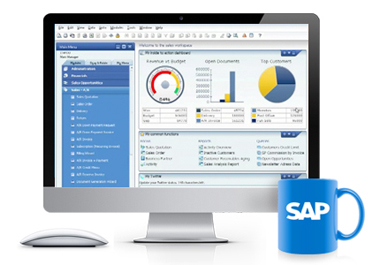How To Plan For A New Enterprise Resource Planning (ERP) Business Software Solution
In the past few years, ERP (Enterprise Resource Planning) has vaulted into prominence as a very important business management tool. Pick a business type and the odds are quite high that ERP is critical to success. The planning process for an ERP implementation may be “seat of the pants”, based on experience, or it may be structural, based on current information and, projections by “experts.” No matter the method a business plans to use for an ERP implementation, the old saying, “Failing to plan is planning to fail”, has a lot of merit.
Whether you are negotiating a business loan or a capital investment of any consequence, it is almost a necessity to have a well prepared, defensible plan to show the lender or investor. Would a football coach enter a game with no plan for the team? Would a surgeon enter an Operating Room with no plan specific to the procedure at hand? No matter what the purpose, a business owner/manager should have a plan at hand.
Regularly updating your venture’s Business Plan in coordination with your ERP system implementation project will pay dividends. The old saying regarding a lack of planning quoted above has withstood the test of time for good reason ““ it makes sense. Regardless of the nature of your business, you would be well-advised to remain committed to the implementation project. Further, ensure that your employees are committed to it, as well. The effort involved is likely to be well justified.
Of course, completion of the exercise will take some time and effort but with the help of ERP implemnetation specialists, the transition does not have to be arduous or annoying. If the planning exercise is adequate and there are no surprises, putting an ERP project in motion should be a smooth process. For the best results, below are some “ERP Implementation Best Practices” to follow:
1. Ensure all top level employees are in agreement concerning of the ERP implementation project’s scope, budget and timeframe.
2. Make the company’s department heads/executives that will use the software applications ERP implementation project team members.
3. Designate one employee as the lead ERP project manager.
4. Create a list of the business issues you’d like the ERP system, once implemented, to improve upon.
5. Decide upon which enterprise-wide metrics will be utilized for evaluating the system’s effectiveness.
6. Determine which parts of the ERP solution are considered “business-critical” for achieving the most efficient operation of your entire organization.
7. Decide which features and functions of the ERP software will help your enterprise achieve greater efficiencies.
There is a wide variety of ERP systems available on the market today. Users can purchase on-premise ERP software and install it on their company’s computers and servers or have the system set up in a private cloud. However, 66% of mid-size businesses using ERP software are running old versions of their software. Many larger organizations often decide that the time and disruption involved in re-implementing incremental releases is unreasonable. Particularly because every upgrade means their businesses can lose very important custom features and other data. ERP technology must remain current in order to take full advantage of its potential. Thus, it is necessary to choose the correct system deployment option which is (a) easy to update and (b) will preserve custom features.
For ERP Systems, Implementation Tech Support and Business Software Services Contact Cornerstone
Since 1983, Cornerstone Consulting has been providing enterprise business management software systems to small and midsized manufacturing, wholesale distribution, and retail companies. In 2005, Cornerstone Consulting became trusted SAP Partners and resellers of SAP Business One. This enterprise resource planning system (ERP) combined with the customization expertise of Cornerstone Consulting, allows a company to implement a state-of-the-art business management solution, tailored to meet its specific business needs. Instead of your business adapting to the software, the ERP system can be easily customized to meet the specific needs of your operations.
Want to jump start your company’s performance, confidently lead your business into the mobile future, or strategically out-run your competition? SAP Business One has many benefits to offer your small or midsized business including: the ability to access the enterprise resource planning system on your iPhone and iPad; better analytics via Crystal Reports; instant, “real time” access to information from finance, manufacturing, warehouse management, customer service and sales departments, as well as automatic “workflow alerts” that provide warnings based on individualized business rules. This permits immediate action in the event of any type of deviation in your “business critical” data. Such an “early warning system” allows businesses to anticipate problems ahead of time as well as work proactively to prevent issues, which can save both time and money. To learn more about how SAP Business One ERP can help your small or midsized business, contact a certified SAP Business One Consultant directly at 813-321-1300 today.


